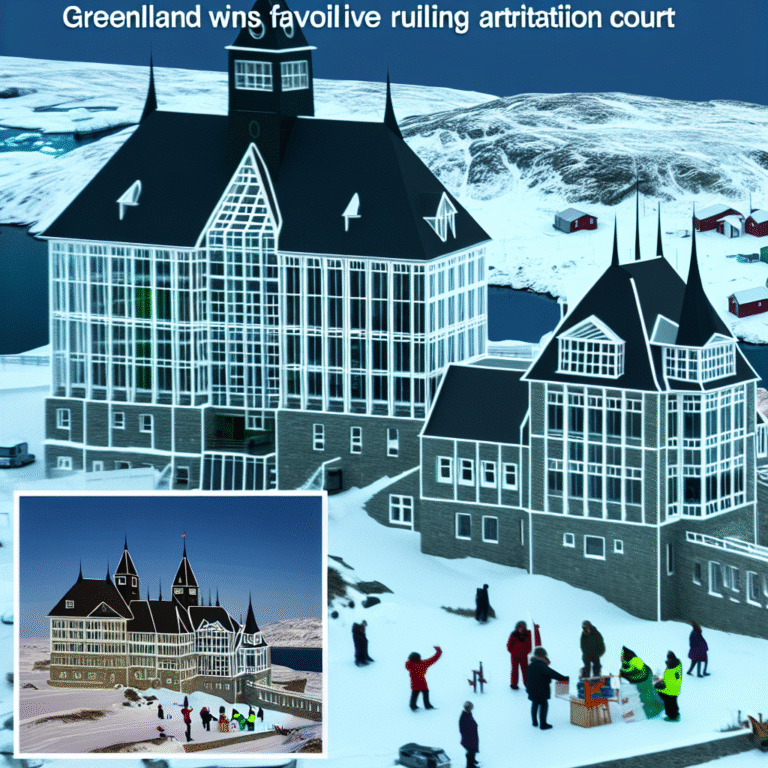Arbitration Court Declares Lack of Jurisdiction in Energy Transition Minerals Case
After more than three years of deliberation, an arbitration court in Denmark has ruled that it does not have jurisdiction to address the dispute involving Energy Transition Minerals and the governments of Greenland and Denmark. This decision marks a significant partial victory for Greenland’s self-governing administration, which has firmly opposed the mining company’s demand for DKK 80 billion in compensation. However, the legal battle is far from over, as the case will now proceed through two separate courts.
Energy Transition Minerals, through its Greenlandic subsidiary, Greenland Minerals, holds an exploration license for the Kuannersuit site near Narsaq. In 2021, following the enactment of the Natural Resources Act, the company encountered substantial hurdles—chief among them, the law’s restrictions concerning uranium content, which prohibits exploitation in areas where uranium levels exceed allowable limits. As a result, the company is seeking either a permit for mineral exploitation or, failing that, substantial monetary compensation. The self-government disputes this claim, asserting there are no grounds for such compensation, and the matter will now be referred to the High Court of Greenland.
The arbitration court’s ruling is a crucial moment for Naalakkersuisut, which had pushed for the case to be dismissed from arbitration in its entirety. “The court has affirmed that the issue of the right to mine at Kuannersuit cannot be litigated in arbitration, nor can the Danish state participate in the arbitration procedure,” read a statement from Naalakkersuisut. However, the court left open the possibility of addressing claims for damages should future court proceedings determined such a question falls within its jurisdiction.
Naalakkersuisoq Naaja H. Nathanielsen, the government minister responsible for business, minerals, energy, justice, and equality, expressed profound relief at the ruling. “We’re very pleased with this decision. It’s indeed a relief to have this part of the case behind us,” she stated. Nathanielsen highlighted that, although the matter continues in the courts of both Greenland and Copenhagen with similar allegations, this ruling is an essential victory. Notably, the costs incurred by Greenland’s self-government in the arbitration will be charged to Greenland Minerals.
The conflict traces its roots to the Uranium Act, a regulation passed in 2021 that prevents the exploration and extraction of uranium and hence denies Energy Transition Minerals’ original application for a rare earth exploitation permit at Kuannersuit. In 2023, their revised application was also rejected after uranium levels at the site were determined to fall between 200 and 400 parts per million, significantly exceeding the 100 ppm cap set by the legislation.
Arbitration, typically a private and binding dispute resolution process involving appointed judges, was used in this case, wherein each party selected one judge, and a third judge, serving as the chair, was agreed upon collaboratively.
As the next legal steps unfold, the implications of this ruling are sure to resonate not just within Greenland but also across the broader landscape of mineral rights and environmental legislation.
